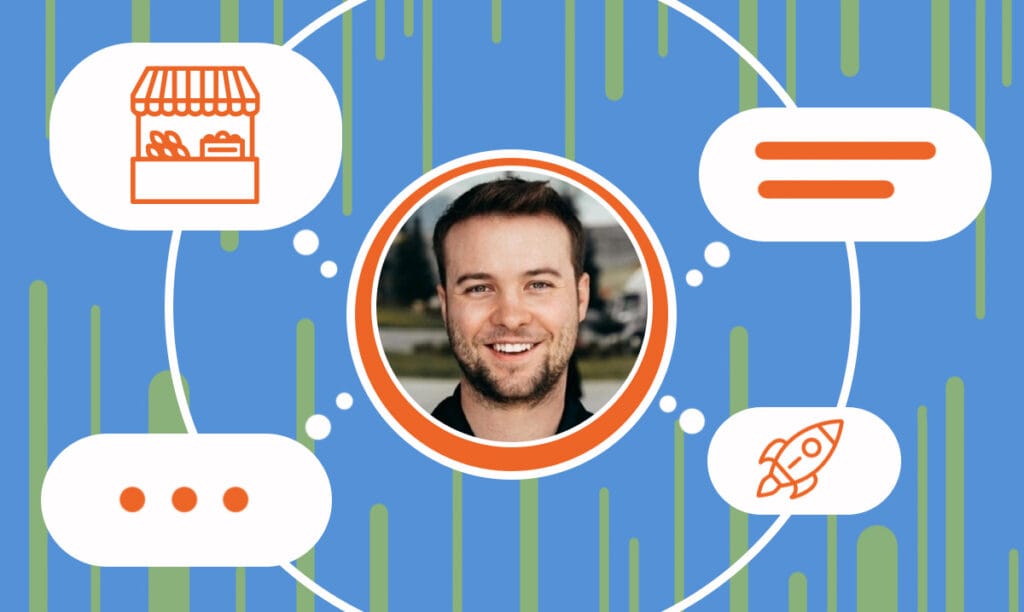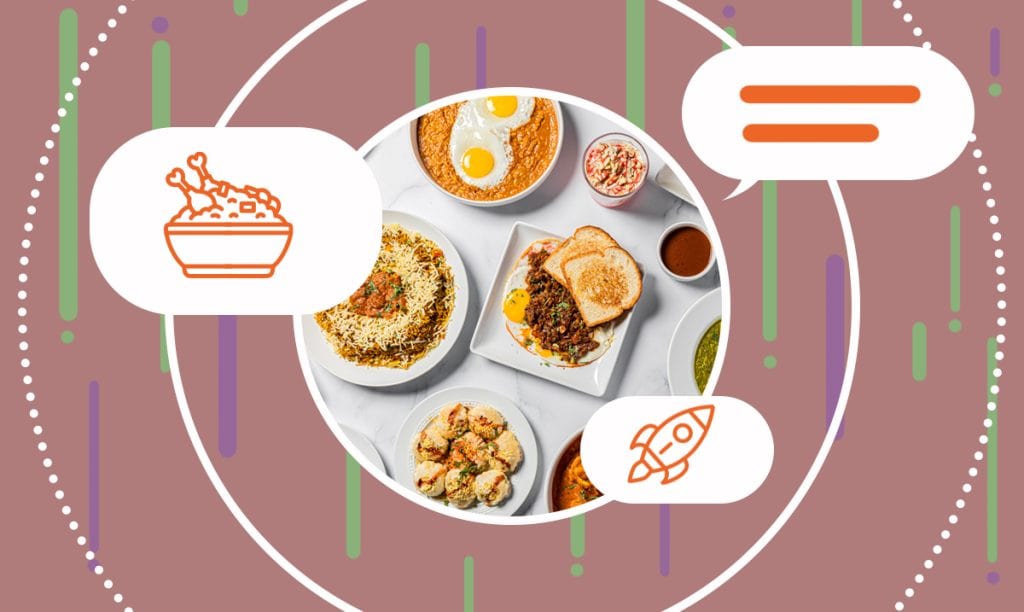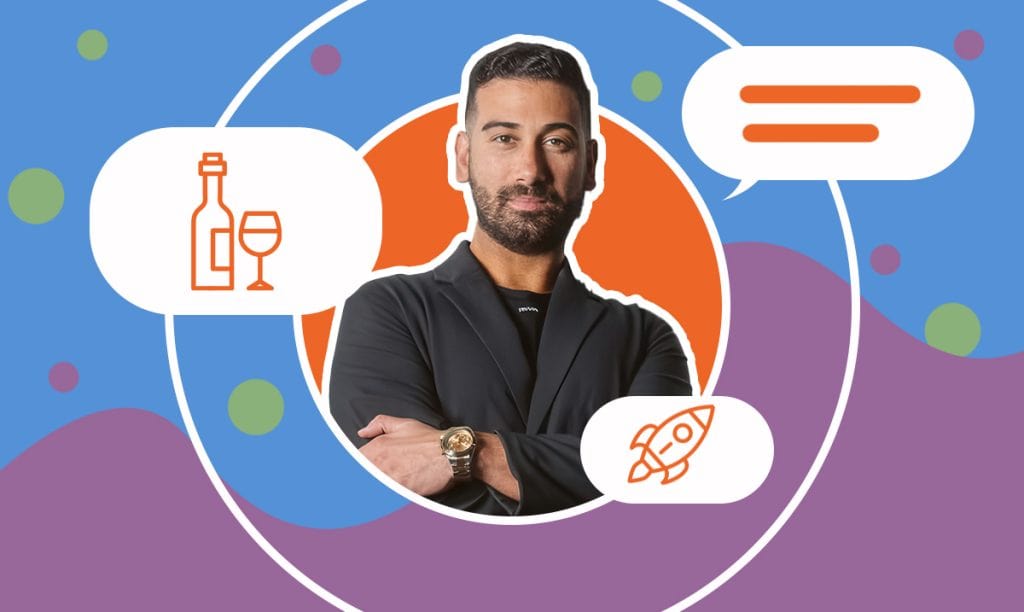In this interview, we sit down with Raimonds Selga, co-founder and board member of Kalve Coffee, a fast-growing specialty coffee brand based inLatvi ...
How Urban Farming Meets Gourmet Eating in Denver’s Heart
Written by: Esther Strauss
Esther is a business strategist with over 20 years of experience as an entrepreneur, executive, educator, and management advisor.
Published on May 21, 2024

In today’s interview, we sit down with Davis Breedlove, the CEO and co-founder of Farm & Market. This innovative venture, spearheaded by Davis and his brother Austin (who’s also a chef in the restaurant), is more than just a farm — it’s a one-of-a-kind hydroponic agriculture concept, fresh farm-to-table produce market, and fine dining quality on a budget. This business is on a mission to redefine the food supply chain and reshape how we think about food production and consumption while prioritizing human and environmental health.
Cultivating Inspiration
SBS – What inspired you to start a business combining hydroponic farming, a market, and a restaurant?
Davis – The impetus was that I’ve always loved plants and growing things. I am a data engineer by trade, but I had a garden and gave produce to my coworkers. When I moved to Colorado, it was wintertime, and the produce went bad in a day. It was pretty disgusting. Lettuce is my wife’s favorite food, so I built a hydroponic setup from the hardware store and grew produce hydroponically for the first time. It was the best produce I’d ever had compared to my garden, and I started thinking about bringing five-star produce to the people. This quality of produce should be for everybody, not just for the uber-wealthy. That’s what spurred it all in motion. Then, we wondered how to bring it to the market.
Nurturing Growth
SBS – How long ago did you start?
Davis – About three years. It feels crazy. It was very “hair on fire” all the time. Super busy!
SBS – What steps did you initially take to start a farm? Was it difficult?
Davis – It was difficult. The first step was to figure out whether we could do it financially feasibly. I started growing in my garage with the commercial system to test yields and timing and to build a software program that schedules and runs the entire farm. Once we went through that and realized that yields and timing were there and that it could be financially successful, the next step was to find a location and work with the city. That was exceptionally difficult.
We’re the first ever to do this in the United States. It’s never been done before. The city of Denver, unlike other jurisdictions, where they throw their hands up and leave you on your own, took the other approach, which is good. They’re keeping people safe and making sure that what we’re doing is not harmful, so they made it very difficult with lots of hoops to jump through. It took about a year and a half of working with the city to get our certificate of occupancy to open and do business. We wanted to move faster and open in the spring, but because of this, we had to open in the fall.

Ensuring Excellence
SBS – How do you maintain the consistency of quality of the produce in an urban environment?
Davis – The consistency of quality of our produce is key to who we are. We have the best product in the country outside of someone harvesting a head of lettuce from their garden. Maintaining consistency and quality is exceptionally important.
We harvest every day, unlike most farms, which harvest about a third or half of their farm produce at once and stay good for about 28 days. We harvest about 2% of our farm every day (roughly 100 pounds of produce). We then package it the same day and put it in our market for sale or push it through our pass-through fridge. There is a glass separating the farm from the restaurant, and that’s how we provide the produce to our restaurant — it’s farm-to-table in about 2ft. We do little batches instead of big ones, which also gives us higher quality.
In terms of the market, we donate any produce that isn’t sold within five days, so there’s no waste. The produce will stay good for about 28 days, so even the produce we donate has more nutrients than you can get at a grocery store here. Produce loses 40% of its nutrients three days after harvest. I’ve learned that, in the United States, produce, on average, is 21 days old by the time it hits your grocery store shelves, so it barely has any nutrients in it. That’s why quality, consistency, and the protocols we put in place to manage our produce are so important.
It’s eye-opening how little people truly understand where their food comes from, what is healthy, and what is not. Education and awareness are major pain points we’re trying to solve for our business to succeed.
Sowing Success: Customer Acquisition and Retention Strategies
SBS – What strategies do you use to gain new customers and retain old ones, both in the restaurant and market segments of your business?
Davis – That’s one of the most important things for us. I actually finished some analytics for that yesterday. We’re strapped for time and busy, but that’s at the top of my list of priorities.
We found that it’s difficult, if not impossible, to tie marketing spend (including social media) to ROI (actual sales revenue in dollars). A better metric is customers (new customers, repeat customers, total unique customers in a time period, conversions — new customers that became repeats, and how long it takes for that conversion to happen).
Experience is really important to us as well. Getting new customers as a small business with a small marketing budget is hard. That’s the biggest hurdle we have. We knew that would be an issue, so we located our business in downtown Denver. We’re surrounded by four huge apartment buildings, and we’re in a very walkable and livable area. That was part of the concept, knowing that we’d have a hard time getting new customers because there are a lot of preconceived notions about what a hydroponic farm is here, especially in Denver (80% of the people think it’s marijuana, and 20% think it’s only for businesses— and we’re neither; we’re for people and product).
Getting new customers is super important to us right now. We’re pushing heavily on digital ads and boots-on-the-ground campaigns. I have a background in developing Salesforce, and we use that tool for internal outreach to businesses and apartments. Our marketing and sales probably take up 50% of my time. It’s all about getting new customers. Because we have the best product, we have a 40% conversion rate to repeat customers. The goal for us is to grow and capture more people coming to the building because the quality of our food and produce has people coming back. You simply can’t get it elsewhere. Because produce is a commodity, you can’t truly understand the quality until you taste it.
Cultivating Communities
SBS – Have you tried bringing your food to schools or restaurants to see if you can convert those into customers?
Davis – We have. We do pop-up events at apartments and businesses, and we also do catering. This summer, we’re also at a farmer’s market. We’re pushing every avenue to get more awareness and more trials. We’re lucky we have two culinary-trained chefs running the kitchen, so it’s almost fine dining. We use fine dining quality techniques and highest-grade ingredients, and they make outstanding meals at a fast, casual price. Because of that, we’ve already named the Best Salads in Denver 2024 by Westword. When we opened last year, we won Denver’s Top Ten Best New Restaurants. It was us (a salad concept) in many fine dining restaurants with small plates where you get one oyster or something.

Integrating Farm Operations with Food Service and Retail
SBS – Is it difficult to manage the integration of farm operations with food service and retail?
Davis – Exceptionally difficult! That’s the hardest part. Every department is interrelated, and all of them rely on each other. Let’s say we had an issue with our cilantro on the farm (which we did). All of a sudden, the market doesn’t have cilantro, and the restaurant doesn’t have cilantro. We then have to divvy the little bit that’s left into one department, which also changes operations on how we fulfill the restaurant and the market. The biggest hurdle is the coordination of handoffs between the three departments to ensure that everything runs smoothly. What we do is so complicated. It’s all based on the daily harvest aspect where new produce is always coming in. We don’t have a huge backlog or a ton of fridges, so we have to be wise on how we operationally consume our produce and allocate it across the board.
Leveraging Social Media and Online Platforms
SBS – Are social media and online platforms important for your business?
Davis – If you had asked me this six months ago, the answer would have been different. We had a huge push because our concept is sexy for social media — glass wall, bright lights, beautiful farm, looks spacey, and has never been seen before.
In terms of getting followers, I have zero social media experience. That’s just not who I am. I’m good with operations, data, and HR, but social media is the one piece that is lacking. But even with my lack of skill, I was able to get our followers to a thousand. Then Kailey (Kailey Boltruczyk) took it over, and she got it to almost 3,000. But every time we had a huge bump in followers, it did not correlate to sales whatsoever. We quickly learned that the time we put into social media doesn’t produce the desired revenue. So, we pulled back from social media.
Now, we use social media not so much to drive sales or revenue but to stay relevant. Every business and every industry is different. Social media is great for other businesses, but it wasn’t great for ours. You need to learn fast and then stay on course or pivot and make the right decisions. It’s a lot of analytics.
Rooted in Quality: Sourcing Beyond Hydroponics
SBS – How do you source non-hydroponically grown products, and what criteria do you have when selecting these products?
Davis – We grow tomatoes in the winter, and leafy greens, microgreens, and herbs are our staples. We source all of our non-farm produce from local suppliers. We’re very mission-driven, doing better for the earth, the environment, and people. We carry that mantra towards the suppliers that we work with. We use a small local company called Fresh Guys instead of the big distributors like US Foods or Shamrock. We want to stay small and local, which are huge criteria.
Those two criteria usually relate to quality in the produce world because the closer you are to your farm, the better your produce will be. We also use organic produce, even though organic produce is not what we think it is. It breaks my heart because organic produce still has chemicals in the United States. If you can’t be profitable as a farmer in the United States for three years trying to grow organically, you can return to non-organic and keep your organic label. What we’ve learned was disappointing, but we try our best to get high-quality produce from small local distributors.
Unexpected Yield: Surprising Benefits of Urban Hydroponics
SBS – What are some unexpected benefits of running a hydroponic farm in an urban setting?
Davis – The benefits are easy. One, the land is already dead. It was a concrete slab, so the benefit is that we can take dead land and turn it into a food supply for a growing urban population. There’s a direct correlation between the loss of farmland and growing urban cities in the US, so growing hydroponically in a city is an answer to that correlating problem of feeding growing cities. The goal is to have a self-sustaining city, of course, and this is the first step.
Another benefit is that it’s better for people. We don’t have a supply chain. Everyone gets 100% nutrients from their produce. There are no chemicals or contaminants such as E. coli (things like that can come from soil). Ours is considered ready-to-eat produce while it’s still growing. You can’t get better. We have a couple of people who drive 30 minutes from the suburbs to come to us because they can’t eat produce from the grocery store. That’s why bringing farms to the cities or urban areas is so important.
Being environmentally friendly is also a benefit. I started a farm on a slab of concrete, so instead of deforesting to create a new farm area to grow crops, we grow them here where the land is already dead. We also save about 3 million gallons of water annually. Every time someone buys a head of lettuce from us, they save 19 gallons of water.
We’re CEA (controlled-environment agriculture), not a greenhouse. We don’t use sunlight, only LED lights. The biggest knock in urban farming is the power pole. We use wind power and pay extra because it’s the right thing to do emission-wise. In addition, we also pump in the city’s CO2-filled air. Air in the cities is not as clean as in rural areas, but the crops take the CO2, consume it, and then put oxygen back into the air. In a way, we’re cleaning the air. I don’t have any metrics around how many tons of CO2 our farm is cleaning in Denver, but our farm probably consumes about 500 pounds of CO2 monthly.
Hydroponic farms should come to the cities. That’s where the people are. That’s where the world is changing. We’re running out of water. This type of farming is sustainable, and it gives people the best produce so they can live healthier lives.
In addition, you can grow a lot in a small space in a city. For example, we harvest 100 pounds a day. We can get up to 140 pounds in a 3,000-square-foot area. So, in an area of this size, we’re growing the equivalent of seven football fields worth of produce. With the new technology, you can pack a lot in a small space. If you have a skyscraper that grows crops on every floor, you can sustainably produce much for a city. Our end dream is to have a skyscraper where we sustainably grow all of the produce for the city of Denver.

Seeds of Wisdom
SBS – What advice would you give someone who wants to start a similar farming business?
Davis – Buckle up for the most challenging time of your life. It’s a lot. Farming is exceptionally hard, and hydroponic farming is even harder. There’s no wiggle room for error. If a pump goes down, you can lose half your farm. Be prepared for challenges and setbacks. Don’t let the hard times get you down. You have to roll your sleeves up, take the punches, and move forward because it’s a difficult industry, and you never know what’s going to happen.
Plants are living things, so in a way, you’re kind of playing God. You’re growing these plants and trying to control their environment, but living things want to do what they want. Our head farmer has a saying that nature finds a way, and it’s so true on the farm.
Also, if you’re going to jump into hydroponic farming, have fun. It’s a lot of fun!
Subscribe to Our Newsletter
and gain insider access to cutting-edge business insights and trends.
Featured Resources

How Kalve Makes High-End Coffee Accessible for Everyone
Published on April 3, 2025
Read Now

How Eggholic is Bringing Authentic Indian Street Food to the US
Published on February 25, 2025
In this interview, we speak with Bhavana Singh, the visionary behind Eggholic, a restaurant that brings the authentic flavors of Gujarat’segg- ...
Read Now

How a Historic Theater Became Houston’s Chic Bar
Published on January 2, 2025
Nestled in the heart of Houston’s Montrose neighborhood, Clarkwood is more than just a chic wine and cocktail bar— it’s a celebration ofhistor ...
Read Now
Comments